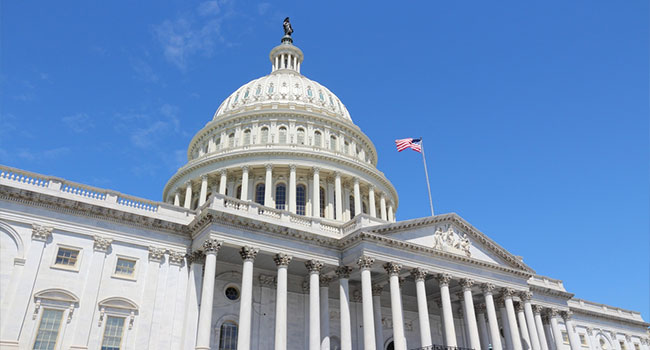
Lawmakers Plan Bill That Would Endanger Tech Company Efforts to Implement Full Encryption
The legislation reflects growing frustration from the Justice Department about the encryption practices of tech companies, particularly when it comes to investigating child abuse or terrorist activity.
- By Haley Samsel
- Feb 26, 2020
Thanks to a push by lawmakers and the Justice Department, legislation will soon be introduced in Congress that would make it difficult for tech platforms to offer end-to-end encryption in messaging services, according to Reuters.
The “Eliminating Abuse and Rampant Neglect of Interactive Technologies Act of 2019,” or “EARN IT Act,” would fight distribution of child sexual abuse material by making tech companies more liable for illegal content shared through its apps and platforms. Under a current law referred to as Section 230, companies are immune from liability for the material shared by their users.
If the legislation were to pass, tech companies would not be immune unless they followed a set of “best practices” determined by a 15-member commission led by the attorney general, Reuters reported. Attorney General William Barr and other Justice Department leaders have expressed their strong opposition to encryption plans by Facebook and the current encryption practices of companies like Apple.
In turn, tech leaders are concerned that the “best practices” will ban companies from implementing end-to-end encryption of files and messages shared on their platforms. Law enforcement officials have long called for engineers to build a “backdoor” so that the messages could be decrypted if necessary, but tech executives and cybersecurity experts warn that doing so would make the technology less secure and easier for outside actors to hack.
Now, Barr’s assistant attorney general for national security, John Demers, said that the department is focused on following the footsteps of Australia and the United Kingdom to limit how encryption can be deployed through legislation.
The legislative push follows a New York Times investigation finding that law enforcement agencies are overwhelmed by the amount of reported child sexual abuse material being shared online, with even more going unreported due to encrypted messaging platforms.
“If you look at what the feeling is about social media companies in Congress today versus what it was…in 2015, it's very different,” Demers told The Washington Post. “There’s a sense that social media companies ought to have more responsibility for what's happening on their platforms.”
The feud between tech companies and the Justice Department over the issue goes back years, including notable disputes over Apple refusing to unlock the iPhone of a man accused of conducting a 2016 terrorist attack in San Bernardino, Calif. Last July, Barr said that encryption could threaten lives and prevent officers from being able to do their jobs.
“Because, in the digital age, the bulk of evidence is becoming digital, this form of ‘warrant proof’ encryption poses a grave threat to public safety by extinguishing the ability of law enforcement to obtain evidence essential to detecting and investigating crimes,” Barr said. “It allows criminals to operate with impunity, hiding their activities under an impenetrable cloak of secrecy.”
The bill will be sponsored by Republican Sen. Lindsey Graham, the chairman of the Senate Judiciary Committee, and Democratic Sen. Richard Blumenthal. Both told Reuters they are still working on the final version of the legislation.
About the Author
Haley Samsel is an Associate Content Editor for the Infrastructure Solutions Group at 1105 Media.